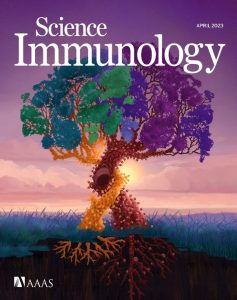 Anthony J. Demetris, MD, McGowan affiliated faculty and Endowed Chair at the Starzl Professor of Liver and Transplant Pathology in the Department of Pathology at the University of Pittsburgh, recently co-authored a study in Science Immunology titled “Tissue-resident memory T cell maintenance during antigen persistence requires both cognate antigen and interleukin-15.”
Anthony J. Demetris, MD, McGowan affiliated faculty and Endowed Chair at the Starzl Professor of Liver and Transplant Pathology in the Department of Pathology at the University of Pittsburgh, recently co-authored a study in Science Immunology titled “Tissue-resident memory T cell maintenance during antigen persistence requires both cognate antigen and interleukin-15.”
The study points to a new approach to treating chronic transplant rejection. Dr. Demetris, alongside lead author Roger Tieu, PhD, and other co-authors, identified a type of immune cell that drives chronic organ transplant failure in mice. According to the paper’s abstract, their findings, “provide insights that could lead to improved treatment of chronic transplant rejection and autoimmunity.”
Fadi Lakkis, MD, co-senior author of the study and Scientific Director of the Starzl Transplantation Institute at the University of Pittsburgh, states, “In solid organ transplantation, such as kidney transplants, one-year outcomes are excellent because we have immunosuppressant drugs that manage the problem of acute rejection.”
However, Dr. Lakkis continues, “Over time, these organs often start to fail because of a slower form of rejection called chronic rejection, and current medications don’t seem to help. Understanding this problem was the motivation behind our study.”
The researchers hope that their findings are the precursors to clinical trials in transplant patients. “In my medical school training,” says Tieu, “I have had the privilege of working with transplant patients. I am excited that our work has the potential to be translated from lab to clinic, with the goal of mitigating chronic rejection and elevating quality of life for our patients.”
Read the full paper at Science Immunology.
Science Immunology image credit Ella Maru Studio.
